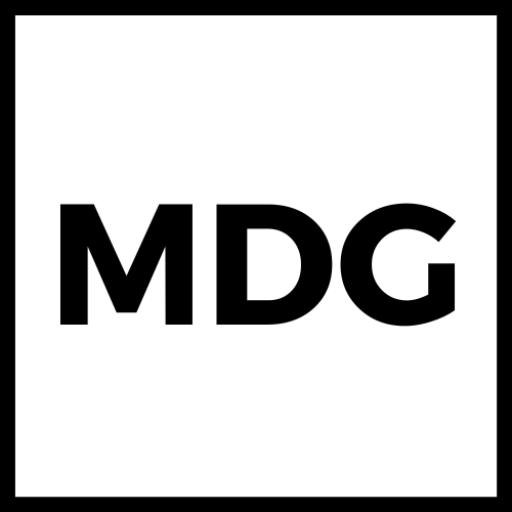Frequently Asked Questions
What is leadership advisory?
Leadership advisory is a blended professional service that merges strategic consulting, executive coaching and mentoring to enhance both individual and organisational leadership capacity. Advisors combine behavioural science, business acumen and cultural fluency to help clients navigate complexity, unlock talent and drive sustainable value.
How does leadership advisory differ from executive coaching?
Executive coaching focuses primarily on one leader’s performance goals, often within a fixed framework and timeframe. Leadership advisory scales the lens to include organisational systems: culture, governance, succession, ethics, brand trust, digital capabilities and stakeholder alignment. The advisor moves fluidly between coach, strategist and conscience.
What are the benefits of leadership advisory for organisations?
Key benefits include faster strategic alignment, stronger decision‑making under uncertainty, improved employee engagement and retention, proactive risk management, and higher innovation throughput. Research from Harvard Business Review suggests organisations that invest in advisory interventions outperform peers on total shareholder return by up to 23 percentage points within three years.*
When is the right time to engage a leadership advisor?
Triggers often include rapid growth, market disruption, funding rounds, post‑merger integration, succession events, cultural transformation, or adoption of new technologies (e.g., AI, automation). Leaders also seek advisory support during crises of trust or reputation, when objective guidance is crucial.
What frameworks do leadership advisors use?
Common frameworks include Adaptive Leadership, Systems Thinking, Psychological Safety, Stakeholder Capitalism, OKR alignment, the Cynefin complexity model, 70‑20‑10 learning, and AI‑assisted sentiment analysis. Advisors tailor these to sector context and values.
How is leadership advisory delivered (virtual vs. in‑person)?
Hybrid delivery is now standard: strategic workshops and board facilitation may occur on‑site, while weekly or bi‑weekly coaching sessions leverage secure video platforms. AI tools allow asynchronous micro‑coaching, voice analysis and pulse surveys between live interactions.
How do you measure ROI for leadership advisory?
ROI blends qualitative and quantitative metrics: engagement surveys, retention of key leaders, cycle time for strategic decisions, pace of digital adoption, and financial indicators tied to leadership priorities. Advisors establish a measurement baseline, then track improvement at 90‑, 180‑ and 360‑day intervals.
What role does AI play in modern leadership advisory?
AI enables sentiment mining, behavioural pattern recognition, scenario planning, and personalised learning nudges. However, human ethical oversight remains vital. Advisors translate AI insights into empathic actions, ensuring compliance with data privacy and algorithmic fairness standards.
How do leadership advisors support Generation Z leaders?
Gen Z prioritises authentic purpose, rapid feedback loops and digital‑first collaboration. Advisors help organisations democratise leadership pathways, craft psychologically safe spaces, and build skills in inclusive communication, ethical AI and sustainability.
What ethical considerations underpin leadership advisory?
Confidentiality, informed consent, non‑maleficence and transparency guide every engagement. Advisors adhere to professional codes (e.g., EMCC, ICF) and local regulations, and explicitly address algorithmic bias and data stewardship when deploying AI tools.
How do I choose the right leadership advisor?
Look for a blend of academic rigour, real‑world leadership exposure, sector fluency and coaching credentials. Ask for references, sample methodologies and a clear articulation of their ethical stance. Chemistry and trust are non‑negotiable.
What is the typical duration and cadence of an engagement?
Diagnostics: 4–6 weeks • Transformation programmes: 6–18 months • Retainers: ongoing. Cadence ranges from weekly one‑to‑one sessions to quarterly off‑sites.
How much does leadership advisory cost?
Fees vary by scope, advisor seniority and geography. Typical ranges: €300–€700 per 60‑minute session; €2 000–€5 000 per workshop day; retainer packages from €25 000 per quarter. Transparent value‑based pricing is emerging for outcome‑focused engagements.
What’s the future of leadership advisory?
Expect tighter integration with advanced analytics, immersive learning (AR/VR), and interdisciplinary ethics boards. As work becomes increasingly boundaryless, leadership advisory will pivot from episodic intervention to continuous, data‑augmented partnership.
What is leadership training?
Leadership training is a structured program that develops skills like strategic thinking, communication, and decision‑making. It combines workshops, case studies, and practical exercises to prepare leaders for real-world challenges and sustainable success.
What is leadership coaching?
Leadership coaching is a one‑to‑one process where a coach works with executives or managers to strengthen their leadership style, improve performance, and reach their goals. With Marlow Guttmann, coaching is tailored, practical, and future‑oriented.
How much does leadership coaching cost?
Leadership coaching typically ranges from €200–€500 (approx. $220–$550) per session, or €3,000–€10,000 (approx. $3,300–$11,000) for multi‑month programs. With Marlow Guttmann, pricing depends on your goals and is designed to deliver measurable results.
How much does leadership training cost?
Leadership training costs vary from €500 (approx. $550) per person for a one‑day workshop to €5,000–€50,000 (approx. $5,500–$55,000) for customized in‑house programs. With Marlow Guttmann, training is adapted to your organization’s needs for maximum impact.

